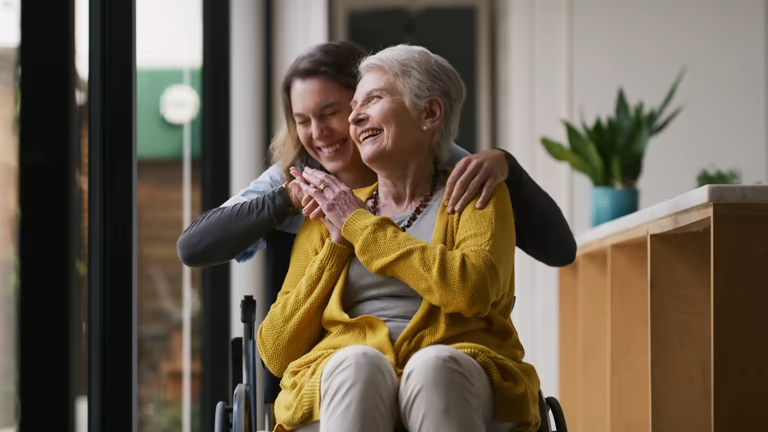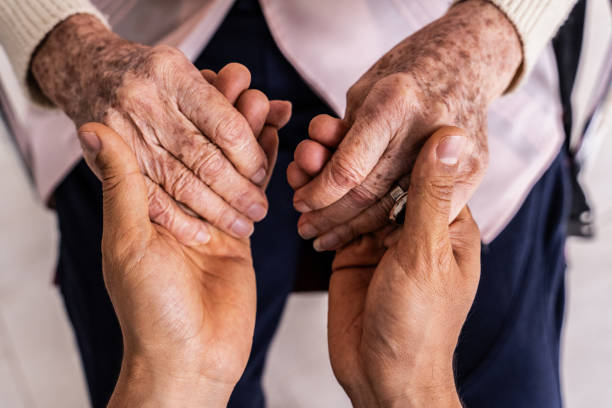As our loved ones age, it’s natural to want to support their independence for as long as possible. However, there comes a point when aging in place without proper care may no longer be safe or sustainable. Identifying the right time to consider senior care support can be a challenging decision—one that involves emotional, practical, and financial considerations. But with the right approach, families can make informed choices that prioritize dignity, safety, and quality of life.
Physical Changes That Signal the Need for Help
One of the earliest indicators that a senior may need additional care is a noticeable decline in physical health. This can manifest in a variety of ways, including unexplained weight loss, difficulty walking or standing, increased bruising due to falls, or a noticeable decline in personal hygiene. These signs are often subtle at first, making it important to pay close attention to everyday habits.
If a parent or loved one starts missing doctor’s appointments, forgetting medications, or struggling to manage daily household tasks like cooking or cleaning, it may be time to consider external support. Senior care services range from part-time in-home assistance to full-time residential care, depending on the level of help needed.
Cognitive Decline and Memory Concerns
Beyond physical health, cognitive changes often drive the decision to seek senior care. Occasional forgetfulness is normal, but repeated memory lapses, confusion, or disorientation may point to more serious conditions such as Alzheimer’s or dementia.
Warning signs include repeated questions, misplacing items in unusual places, getting lost in familiar areas, or forgetting the names of close family members. These memory-related issues not only impact day-to-day functioning but can also present serious safety risks, such as leaving the stove on or wandering outside unsupervised.
In such cases, specialized memory care facilities or in-home professionals trained in dementia care can provide tailored support and reduce the stress on family caregivers.
Social Isolation and Emotional Well-being
Social isolation is a silent risk factor in aging adults. A once-active parent who now rarely leaves home, avoids social activities, or shows signs of withdrawal and apathy may be struggling with more than just aging. Loneliness can lead to depression, anxiety, and even cognitive decline.
Senior care support can reintroduce structure, companionship, and stimulation into their routine. Whether it’s through adult day programs, assisted living communities, or even regular visits from a home caregiver, these services can significantly enhance emotional well-being and prevent the decline that often accompanies social isolation.
Caregiver Burnout: A Signal You Shouldn’t Ignore
Many adult children or spouses take on the role of caregiver with the best intentions, but over time, the emotional and physical demands can become overwhelming. If you find yourself constantly stressed, physically exhausted, or emotionally drained, this could be a clear indicator that professional help is needed—not just for your loved one, but for your own health as well.
Caregiver burnout can lead to resentment, reduced quality of care, and even health complications for the caregiver. Bringing in professional support isn’t a sign of failure; it’s an act of love that ensures both you and your loved one receive the care you need.
A Noticeable Decline in Home Safety
Another red flag is when the senior’s living environment becomes unsafe. Are there multiple unexplained bruises or falls? Are appliances being misused or left on? Is the home becoming cluttered or unsanitary?
Home safety is essential, especially for seniors with mobility issues, poor vision, or cognitive decline. In-home assessments conducted by senior care professionals can identify risks and recommend solutions such as grab bars, stairlifts, or even a transition to a more supportive living environment.
If safety concerns continue to grow despite interventions, a move to an assisted living facility or nursing home may become necessary to protect your loved one’s well-being.
The Role of Professional Assessments
Sometimes, the best way to determine whether senior care support is needed is to seek a professional evaluation. Geriatric care managers, social workers, and physicians can assess your loved one’s physical and cognitive health, living environment, and overall needs. These evaluations can provide objective insight and help families create a care plan that evolves with the senior’s changing requirements.
Having a professional perspective can also help ease family tensions, especially when not everyone agrees on the best course of action.
Planning with Compassion

Acknowledging that your loved one may need senior care support can be emotionally difficult—but it’s also a proactive step toward maintaining their dignity and quality of life. The key is to approach the conversation with empathy, patience, and respect. Involve them in decision-making where possible, and reassure them that the goal is to support—not replace—their independence.
Senior care doesn’t have to be a last resort. When introduced at the right time, it can be a powerful tool to help aging adults live more fully, safely, and happily in their later years. Being attentive, informed, and willing to act can make all the difference in ensuring your loved one thrives.


Recent Comments